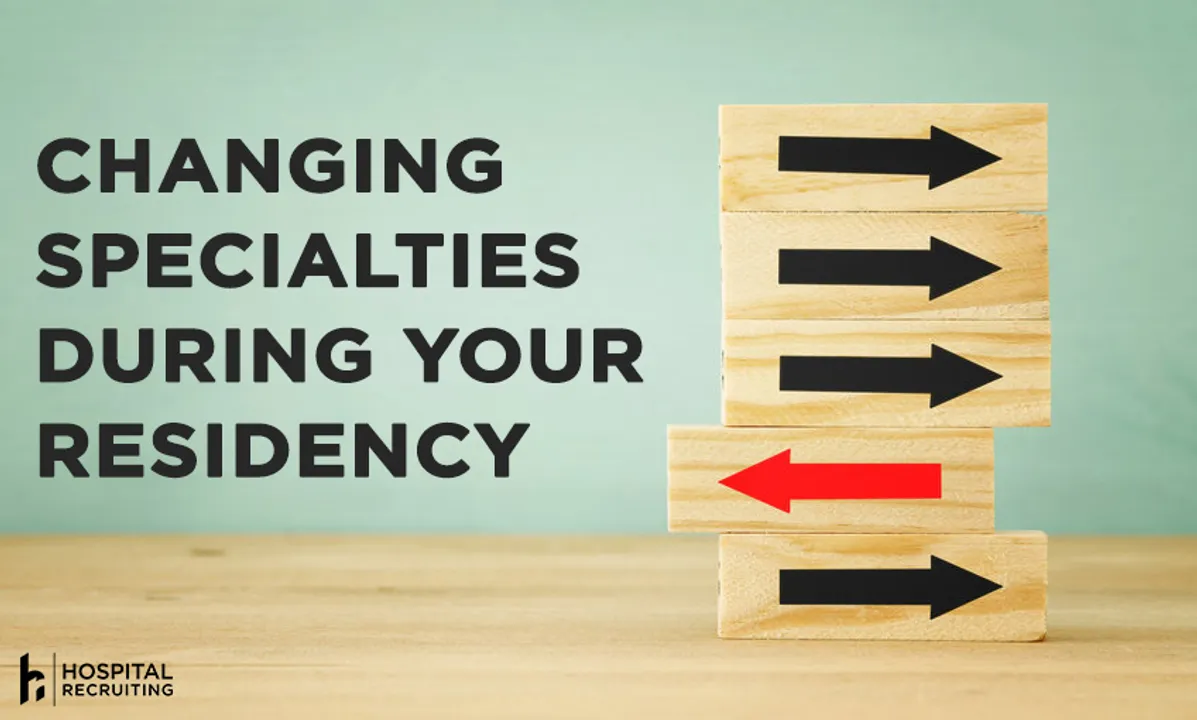How to Successfully Change Your Specialty During Residency

There are no clear statistics, polls, or studies to know exactly how many physicians each year, or within their working lifetime, switch specialties. But with physician dissatisfaction scores steadily rising, this is becoming a very common sentiment.
First of all, I want to normalize and encourage everyone to practice self compassion during this process.
I personally changed specialties early in my career and have numerous colleagues who also changed. We all profess immense happiness in retrospect for having done so. In this article, we will briefly discuss how to begin the process in residency, pitfalls to avoid, and how to maintain relationships during your professional shift.
Most know within the first few months of starting a residency that they made a mistake. In medical school, the selection process is pressure cooked to align with the match timeline, fueled by scrambling after away rotations and feverishly studying for COMLEX or STEP exams.
Give yourself some grace.
Medical school does not provide enough exposure to allow anyone adequate time to rationally, thoughtfully choose a specialty. Many attendings tend to show students the most interesting cases while hiding or sheltering you away from the mundane, day-to-day reality of the job.
How to Begin the Process
- Communicate your thoughts and feelings as early as possible to your program director. You owe it to yourself, the PD, and your fellow residents to let them know you plan to switch. This gives your PD time to fill your spot with another resident. If you suddenly leave, all of your shifts will be dispersed to your colleagues, which places enormous pressure on them and their families.
- Create a profile on https://www.residentswap.org. This company charges a nominal fee to alert you when residency spots become available. Alternatively, you can spread the word that you’re looking for X specialty. Friends can connect you with another PD that is looking.
- You do not have to re-enter the match, necessarily. Depending on your desired specialty, the 1 year of residency that you completed will count toward any required preliminary year. Many residencies that are looking to match a PGY-2 will accept you outside the match, unless they indicate otherwise.
- Build your application. This includes letters of recommendation, your transcripts from medical school and residency, board scores, and a letter from your PD that you are leaving in good standing. Write a thoughtful, professional personal statement explaining why you’re switching. Have several colleagues from within your new specialty proof this. Having the correct tone is critical here. You do not want to sound burned out, whiney, or disparage your current program/specialty.
- You can always enroll in a research year. If you’re not sure what specialty, or can’t find any spots, it doesn’t hurt your application at all to enroll in a research year. Be sure this is paid. These spots can also be found using residentswap.org.
- You must absolutely be enrolled somewhere if you plan to leave. If you simply take a year off, you will never match again. Taking an extended break can be career suicide. If you cannot secure something, it’s better to stay in your current residency for another year. Legally, they cannot fire you or coerce you to quit.
Pitfalls to Avoid

- Only leave or switch at the end of the academic year, which is the end of June. Leaving mid-year causes scheduling problems that, once again, are unfair to the rest of the staff. This also looks poorly on you and can burn bridges. Medicine is a small community.
- Do your best to leave in good standing. Some programs may become hostile when you inform them that you will leave. Legally, they must provide you time to participate in interviews. Review ACGME guidelines and use that language if needed. Residents suffer unnecessary bullying, hazing, and intimidation that can be deflected if you know and stand by your rights.
- Go above and beyond during your last few months. It’s tempting to check out, but if you perform poorly, or make excessive mistakes, this will affect how your PD reviews you. Unfortunately, your application and entire career hinges on the review from your PD. Even after you graduate residency and enter the world as an attending, for upwards of 5 years post-graduation, any new employer will require a LOR from your PD.
Related Posts
